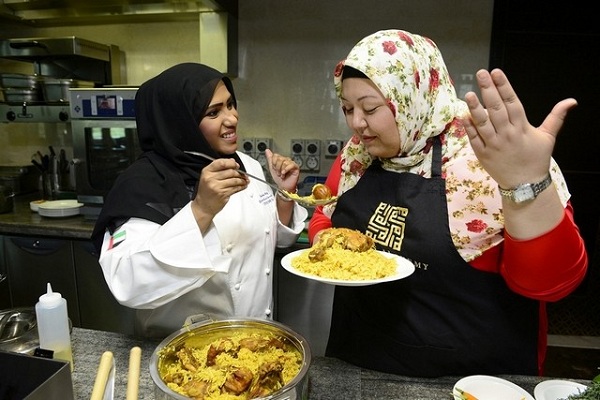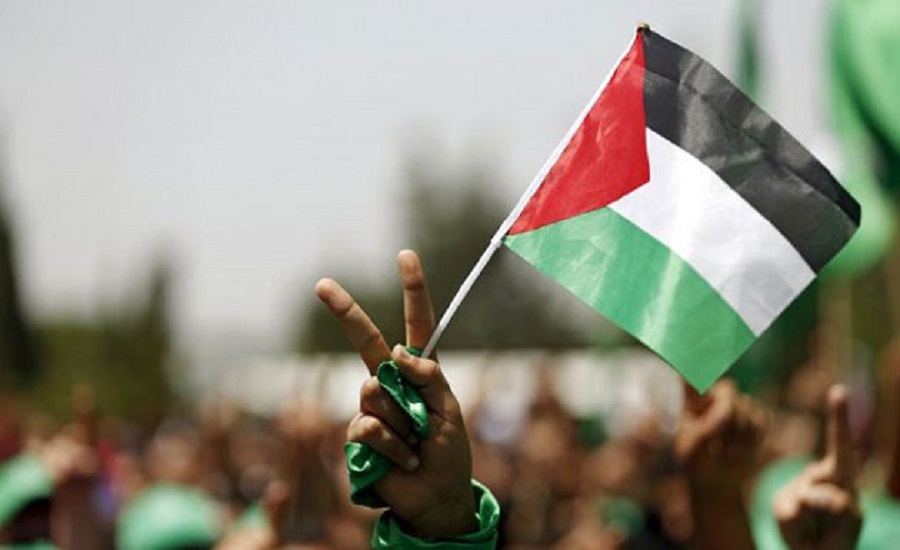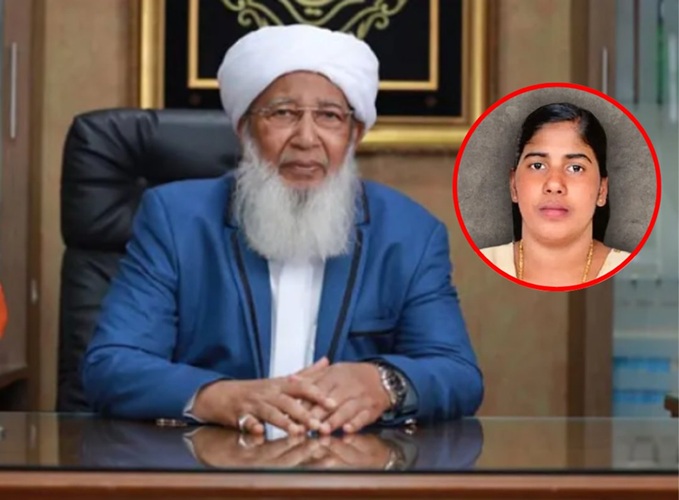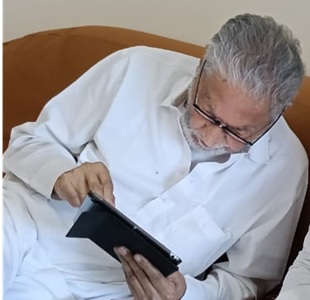 By Uzma Naheed, Member All India Muslim Personal Law Board,Mumbai
By Uzma Naheed, Member All India Muslim Personal Law Board,Mumbai
- Alhamdulillah, Muslim Personal Law Board has taken bold steps to thwart the political agenda of ruling party by starting a nationwide campaign against their intention to ban triple talaq and impose Uniform Civil Code on Muslims. Though this period was quite disturbing, there is a positive side of this chaos that Muslims in general gained knowledge about talaq, its forms and the correct way of giving talaq if need be. There are questions raised by the so called progressive people including Muslims who say that if triple talaq is criminal then why you allow it to be used. Like any other law we have no means to ensure that all the laws are adhered to and there are always people who defy them. In such eventuality why the culprit is not punished or penalized for the crime he has committed. In early period of Islam which is known as Khairul Quroon ( the best of times). Such offenders were punished whereas we have no law in personal law to check this menace which is very much against the tenets of Islam.
Since this required a change of law or making a new law which was not practical our group discussed with the then President of Muslim Personal Law Board Qazi Mujahidul Islam Rehmatullah Allaih and other Ulama about putting in conditions in Nikahnama which was done a century back by Moulana Ashraf Ali Thanwi (Rehmatullah Alaih). This conditional Nikahnama was sent to over 300 Ulama and Muftis all over India byr Moulana Mujahidul Islam for opinion. When all these opinions wre received they were published in book form by Qazi sahib with a title Al Ishtrat fin Nikah (Conditions in marriage contract). Almost all of them agreed that conditions could be put in marriage contract at the time of Nikah and they are valid.
For example if a husband utter triple talaq which is a crime in Islam and for which we have no provision to punish; under such circumstances the women have no option except to file a suit against such men and a large number of cases are pending in courts and many are adjudicated against men; this interferes with our personal laws. Under conditional Nikahnama a provision could be incorporated that in such eventuality the Mehr would be doubled or tripled which will be a punishment to ooffenders; such conditions are also valid under Indian contract act and could be imposed legally and Muslim women
It was a very carefully designed Nikahnama in which women’s rights were protected. Muslim Personal Law Board has accepted the conditional marriage contract with modifications and changes in Nikahnama. The fact is that the concept of Nikahnama was accepted by the board and it was a big achievement.
The reasons for drafting Nikahnama are enumerated below:
- In India Muslims have no power to initiate punitive action against those who violates Shariah. We have no courts to, where the spouses could present their cases and the correct position could be adjudged when there are differences between husband and wife.
- Its pity that Muslims are so ignorant and the triple talaq is rampant; men now started using SMS, email and fax for pronouncing talaq. Such women neither get their Meher agreed at the time of Nikah nor would they get paid the maintenance during Iddat period, which is a must in Shariah.
- All women, who mostly belong to very poor families, are subjected to worst kind of atrocities after talaq and have no protection whatsoever. Particularly when the husband walks away from her life leaving children unattended. The woman has to take care of children and usually does odd jobs and lives in extremely poor condition. Children hardly get any education and resort to begging or criminal activities.
- It will not be proper to think that mere reforms would be enough to rectify the situation unless some punitive action is taken against the erring people or some deterrent is available. Even in early period of Islam punishments were given to those Muslims who were found guilty of violating any matrimonial law. So mere reforms in society would not stop these evil practices.
- With a view to make such people punishable under the law of the land the only option available to us is to draft a conditional marriage Contract (Nikahnama) in which, some conditions could be stipulated from girl’s side to protect her in untoward circumstances like second marriage leaving first wife and her children, non payment of maintenance. Wife beating and cruelty etc.
- There is no need to talk about banning triple talaq for the only difference is whether it would be construed as one talaq or three talaq, which the scholars alone would decide. However all the schools of thought unanimously declared that this is most heinous act a man could commit, The question is what we could do to stop this evil practice. Unfortunately our Ulama have also not covered matrimonial issues in their speeches to address this issue, which could have been of great help for Muslim women.
- Since this issue was raised by national media frequently, the Muslims in general took it as media hype and did not find it necessary to address the issue. However, social activists who are working at grass root level knew that the problem is acute and need urgent attention particularly the Muslim Personal Law Board.
- An argument pushed against Nikahnama is that if the Nikahnama is capable of solving all the matrimonial issues. The fact is no law is capable to solving all the problems. We have the best laws provided by Quran and hadith and yet we have so many crimes both civil and criminal. The fact is that once the society does have laws and authority to enforce those laws, either the crimes are not committed or the culprits are punished suitably. Thus the punishment works as deterrent. In case of Muslim Personal law though the husband pronouncing talaq without any valid reason is valid, the punitive laws to punish such men, which were prevailing in early days of Islam are not enforceable. As a result the perpetrator of such crimes go unpunished.
- In view of this anomaly, the judiciary started interpreting Quran and Islamic laws as per their wish and whims and many judgments have come in last few years, which are against the spirit of Islamic laws. The fault here does not lie with Islamic laws but partial implementation of the same.
- One way to address this issue is to ask the government to modify criminal procedure code and incorporate certain punitive actions against such Muslims who violate Personal laws or to have the marriage, which is a contract in Islam with a conditional marriage contact (Nikahnama), which is perfectly valid in Islam.
- In Islam a men could divorce his wife by utterance of word Talaq and a woman has to have Khula if she wants to have talaq. The procedure for Khula has been made so cumbersome that usually women avoid using it and forced to live a life of rancor or go to a court of law. We know that Amarat Shariyah or Shariat courts are limited where women could reach for her rights. Moreover, women usually feel shy of telling many a things before men Qazi about her husband that she did not like. Sometimes women face problem, as the husband does not pay her maintenance or expenses for the children, or drinks alcohol or beats the wife regularly when drunk. Under such extreme situations we suggested the delegated right in woman at the time of marriage to give talaq if man failed to give maintenance for her and children for six months, or drinks alcohol or beats her, which is valid in Islam.
- Alternatively, Muslim Personal Law Board could appoint Imams of various large mosques in each city who would be authorized to hear such cases and if satisfied than declare such marriage as null and void separating women from her husband.
- Originally the idea of a conditional marriage contract (Nikahnama) was taken from the book “ Al Heelatn Najiza” by most renowned scholar Moulana Ashraf Ali Thanvi and a model Nikahnama was drafter and presented before Moulana Mujahidul Islam Qasmi who sent copies of the Nikahnama to more than 300 scholars/ ulama/ Muftis. Their opinions were collected and published by Fiqha Academy with the title “Ishtarat Fin Nikah” meaning Conditions under marriage. Most of the ulama/ Muftis favored putting conditions in marriage contract and found it perfectly valid in Islamic laws.
- Meher is the right of woman. Just as in every contract there has to be a consideration, in marriage Meher is the consideration, without which a contract of marriage is invalid. Unfortunately, women are asked to forego Meher or is considered more pious act if she refuses to accept it. Usually its payment is deferred sometimes for decades during which period it’s value goes miserably down due to inflationary pressure. A Meher of Rs.10,000/- twenty year ago was quite a big sum, which has become miserably low as of now. It is necessary that in Nikahnama we also suggest that Meher could be in Shares, Bonds, Gold and silver or property etc., where the value appreciates and takes care of inflation.
- It’s common knowledge that men leave wives after sudden divorce and do not pay even for sustenance of children, which is his duty and responsibility. The women though illiterate work and take care of children whereas men after divorce are free to marry again and live normal life. The Nikahnama also takes acre of such situation where a condition to the effect could be incorporated that the man would be responsible for sustenance, education and health care of children who would remain with their mother till they are grown up.
- We have different schools of thought and do accept the provisions of other fiqh in case of need. In case of Fiqh Imam Abu Hanfia if the husband is missing than the wife has to wait her entire life and cannot marry any other person. During the time of Moulana Ashraf Ali Thanvi, some women found apostacy as easy way to dissolve the marriage and converted to other religion so that their nikah is automatically annulled and they married non Muslims. In order to check this menace, Moulana Thanwi invited Ulama of various schools of thought and found a solution in Fiqh Imam Hambal where the nikah can be annulled after two years. Today since triple Talaq has been a cause of hardship for women its advisable that Ulama should sit together and finmd a way out. In Nikah Nama the provisions of variouis fiqh could be ibncorporated if need be.





0 Comments